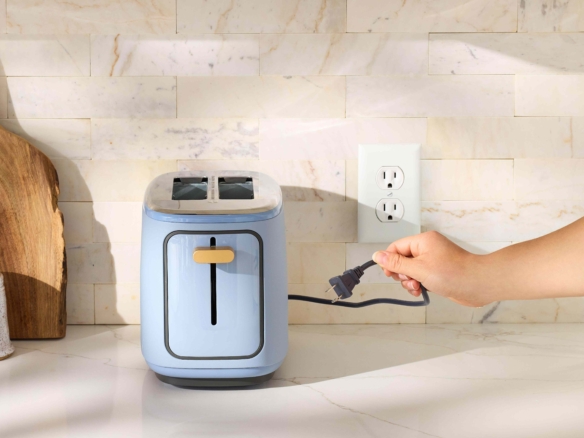
You’ve sold your home and are ready to move but when should you actually stop your utilities? It’s best to wait until after your home sale officially closes and the buyers take possession. Turning them off too soon can lead to last-minute headaches during inspections or final walkthroughs. This helps ensure a smooth handover for the new owners and protects the property in the meantime.
Whether you’re searching for a home in Austin, TX, Portland, OR, or Atlanta, GA, this Redfin guide will walk you through when to stop utilities when selling a house, why the timing matters, and how to coordinate the changeover so everything goes off without a hitch.
Why timing the utility end date matters
Sellers should keep all essential utilities active until at least the day after closing. This is crucial for a smooth closing, successful home inspections, and meeting contractual obligations.
1. Inspection, appraisal, and final walk-through
Shutting off utilities too soon can prevent the buyer from completing the final walk-through, testing systems, or running appliances, and may also be required by the appraiser to validate essential systems.
2. Protecting the home until ownership transfers
Keep utilities on until the sale is officially recorded; otherwise, a vacant house risks burst pipes, mold, and damage (or even liability for trespassers).
3. Avoiding liens, delays and credit issues
Unpaid utility bills become property liens, potentially stalling the closing. Disconnecting service too soon can lead to surprise charges or unexpected holds on sale proceeds.
When to stop utilities when selling a house
Work with your Redfin agent and the buyers to keep utilities on until closing. Planning ahead helps to avoid any potential issues.
Before listing
- Compile a list of all utilities: electric, gas, water/sewer, trash, internet/cable (if applicable).
- Notify your utility providers of your upcoming move/sale date and note any required final meter read or cancellation fee.
>> Read: 12 Things to Do Before Selling Your House
After offer accepted and under contract
- Coordinate with your agent and buyer’s agent on any occupancy or final walkthrough terms.
- Ask each utility company: “What’s your policy for transfer/disconnect when the home is sold?”
On closing day
- Many experts recommend scheduling the cutoff the next business day after closing – not the day before or the exact moment of closing.
- Make sure the buyer has arranged service into their name beginning the day of possession (or closing day).
- Send a final meter reading (if required) and provide a forwarding address for your final bill.
- Confirm with each utility company that the account is closed or transferred, and request a confirmation number/email as record.
If possession is delayed or you’re staying after closing
- If you’ve negotiated to stay in the home after closing (or the buyer delays move-in), keep utilities active until your agreed occupation ends.
- If the home will stand vacant even briefly after closing, maintain minimal heating/cooling and security lighting until transfer of possession.
What if you stop utilities too early?
Turning off utilities too soon can cause serious problems. If buyers or inspectors show up to find no power, water, or heating, it could delay closing or even cause them to renegotiate. Without active utilities, inspections or appraisals might have to be rescheduled, and the home could suffer damage from issues like frozen pipes, mold, or pests. You might also face reconnection fees, closing delays, or even title complications if unpaid balances turn into liens.
Transfer vs. shut-off
When you’re managing your utilities during a sale, consider whether to transfer service or shut it off.
- Transfer: Ideally, services are simply transferred from your name to the buyer’s name on the scheduled cutoff date. This maintains continuity without an actual interruption.
- Shut-Off: If the home will sit vacant, you may arrange to end your service entirely, but you’ll need to ensure this is coordinated with the buyer’s timing and that no damage occurs while the home is unoccupied.
Checklist for sellers to ensure a smooth utility transition
A little planning goes a long way when it comes to switching over your utilities. Use this checklist to make sure the transition goes smoothly for both you and the buyer.
- Notify providers 7–14 days ahead of expected cutoff or transfer
- Provide the buyer’s moving-in date so they can schedule service start
- Leave the buyer a list of provider contacts, account numbers, and any login info (if appropriate)
- Confirm forwarding address for your final bills to avoid surprises
- Check your agreement/contract for any utility-related clauses
- Schedule cutoff for a business day to reduce risk of delays (weekends can complicate reconnections)
- Keep records of all calls, confirmation numbers, meter reads, and disconnection/transfer emails
FAQs: When to stop utilities when selling a house
1. How many days after closing should I stop utilities when selling a house?
Most agents suggest scheduling the cutoff for the next business day after closing, but always check your contract and coordinate with the buyer.
2. Can I shut off utilities before closing when selling a house?
It’s generally not recommended. Turning off water, gas, or electricity before the official sale can delay closing, breach contract terms, or trigger damage to the property.
3. What utilities do I need to keep on when selling a house during winter?
At minimum, you should keep heating, water and electricity active. This prevents frozen pipes, mold growth, and preserves the home’s condition while it’s still under your responsibility.
>> Read: Holiday Home Staging Tips for Selling Your Home in the Winter
4. How do I transfer utilities when selling a house to the buyer?
Begin by contacting each provider with your closing date and the buyer’s move-in date. Schedule a service transfer or disconnect accordingly, take final meter readings, and supply a forwarding address for your final bill.
5. What happens if unpaid utility bills surface after I sell a house?
Unpaid bills may turn into utility liens attached to the property before closing. This can delay or even block your sale from proceeding. Ensuring all bills are paid and service is transferred properly is critical.
6. How much notice do I need to give utilities when moving?
Contact utility companies at least 2–3 weeks before your move to schedule service shut-off at your current home and start-up at your new one. For specialty services like internet/cable, or during busy times, contact them earlier. If staying local with the same provider, you may be able to transfer service instead of canceling.
The post When Should You Stop Utilities When Selling a House? appeared first on Redfin | Real Estate Tips for Home Buying, Selling & More.





Join The Discussion